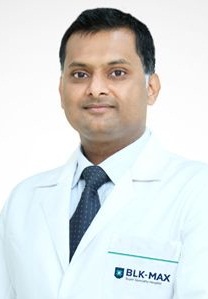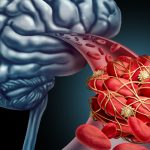Parkinson’s disease is a progressive disorder of the nervous system that affects the body movement. It has a gradual progression and usually starts with no symptoms or barely noticeable ones in either hand. Usually tremor in hands may be enough to justify the prevalence of Parkinson’s but it can also be accompanied by stiffness or slowing down or reactive movements.
During the early stages, the face may show little or no expression, or arms may not swing when you walk, speech may become soft or slurred and the symptoms gets worse as the disease progresses. In such situations it is important to consult an experienced Neurosurgeon immediately.
How to identify the symptoms?
Depending upon the person the signs and symptoms may vary. Early signs may be mild and may go unnoticed. Symptoms often begin on one side of the body and usually remain worse on that side, even after symptoms begin to affect both sides.
Parkinson’s signs and symptoms may include a tremor or shaking of a limb, slowed body movement, muscle stiffness restricting the range of motion, impaired posture and balance, loss of involuntary movements, speech or writing issues.
What causes PD?
In Parkinson’s disease, certain nerve cells (neurons) in the brain gradually break down or die. Many of the symptoms are due to a loss of neurons that produce a chemical messenger in your brain called dopamine. When dopamine levels decrease, it causes abnormal brain activity, leading to signs of Parkinson’s disease.The cause of Parkinson’s disease is unknown, but several factors appear to play a role, including genetics, and environmental triggers like exposure to certain toxins.
How to diagnose?
It is best to get it tested from an experienced Neurosurgeon based on the medical history, physical examination and review of the sign and symptoms.
Imaging tests — such as MRI, ultrasound of the brain, SPECT and PET scans — may also be used to help rule out other disorders. Imaging tests aren’t particularly helpful for diagnosing Parkinson’s disease. Sometimes it takes time to diagnose Parkinson’s disease. Doctors may recommend regular follow-up appointments with Neurosurgeons trained in movement disorders to evaluate your condition and symptoms over time and diagnose Parkinson’s disease.
How to treat it?
In deep brain stimulation (DBS), surgeons implant electrodes into a specific part of your brain. The electrodes are connected to a generator implanted in your chest near your collarbone that sends electrical pulses to your brain and may reduce your Parkinson’s disease symptoms.
Deep brain stimulation is most often offered to people with advanced Parkinson’s disease who have unstable medication responses. DBS can stabilize medication fluctuations, reduce or halt involuntary movements (dyskinesias), reduce tremor, reduce rigidity, and improve slowing of movement. DBS is effective in controlling erratic and fluctuating responses to medication for controlling dyskinesias that don’t improve with medication adjustments.
However, DBS isn’t helpful for problems that don’t respond to medication therapy apart from tremor. A tremor may be controlled by DBS even if the tremor isn’t very responsive to medication.
Why DBS is preferred over medications?
Medications are provided for temporary effect to subside the symptoms of PD. When a person is able to enjoy the effect of the medicine, it is known as on-phase and when it subside its known as off-phase. Over a period of time the effect of the medicines on the body tends to stop and hence the frequency of medicine intake increases. If a patient is prescribed to take the medicine thrice a day, then due to the loss of effect, they might need it more than 8 times a day. This affects their quality of life as they tend to get on and off that many times.
What DBS does is that it provides a constant effect to the patient for 24 hours. It avoids dyskinesia that is it prevents the halting of involuntary movements. Moreover DBS doesn’t allow tremor fluctuations as in case of medicines. Medicines tend to end the effect unpredictably, and patients planning for their work or to go out for shopping may be at a risk of attack as the effect may subside any time which can impact their quality of life.
( The Author is Associate Director – Neuro Surgery & Neuro Spine, BLK-Max Super Speciality Hospital, New Delhi)








